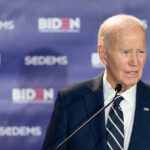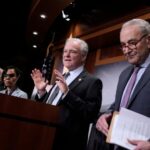

TikTok’s Chinese owners were told to sell their shares in the app or face the risk of a national ban by the White House, a notable shift in policy from the Biden administration.
The Committee on Foreign Investment in the United States, an interdepartmental agency that reviews transactions with international businesses, made the demand of Chinese parent company ByteDance in recent weeks, according to the Wall Street Journal. The forced sale would allegedly separate TikTok from its parent company, whose affiliations with the Chinese Communist Party have led lawmakers to scrutinize the company for possible national security risks.
TWITTER TROLL’S ELECTION INTERFERENCE TRIAL DELAYED AFTER ALLEGED WITNESS INTIMIDATION
The app’s owners appear unconvinced that such a sale would resolve the concerns. “If protecting national security is the objective, divestment doesn’t solve the problem: a change in ownership would not impose any new restrictions on data flows or access,” TikTok spokeswoman Brooke Oberwette said in a statement. “The best way to address concerns about national security is with the transparent, U.S.-based protection of U.S. user data and systems, with robust third-party monitoring, vetting, and verification, which we are already implementing.”
TikTok has spent $1.5 billion on “Project Texas,” an effort to migrate all U.S. user data to city servers to ensure the data are protected from alleged requests from the Chinese government. Critics are uncertain that the project is enough to guarantee the data are properly protected.
Congress has also pushed its own efforts to restrict TikTok within the U.S. These include bills like Sen. Marco Rubio’s (R-FL) that ban the app outright and Sen. Mark Warner’s (D-VA) that provide extra powers to the Commerce Department to analyze and determine if select business deals are potential security risks.
Republicans have pushed for a ban on TikTok since 2020, during the Trump administration. Democrats have been hesitant, although several have co-sponsored Warner’s Restricting the Emergence of Security Threats that Risk Information and Communications Technology, or RESTRICT, Act.
CLICK HERE TO READ MORE FROM THE WASHINGTON EXAMINER
Chinese authorities may also be resistant to such a sale and could attempt to block it if it went through.
TikTok CEO Shou Zi Chew is set to speak before the House Energy and Commerce Committee on March 23.







